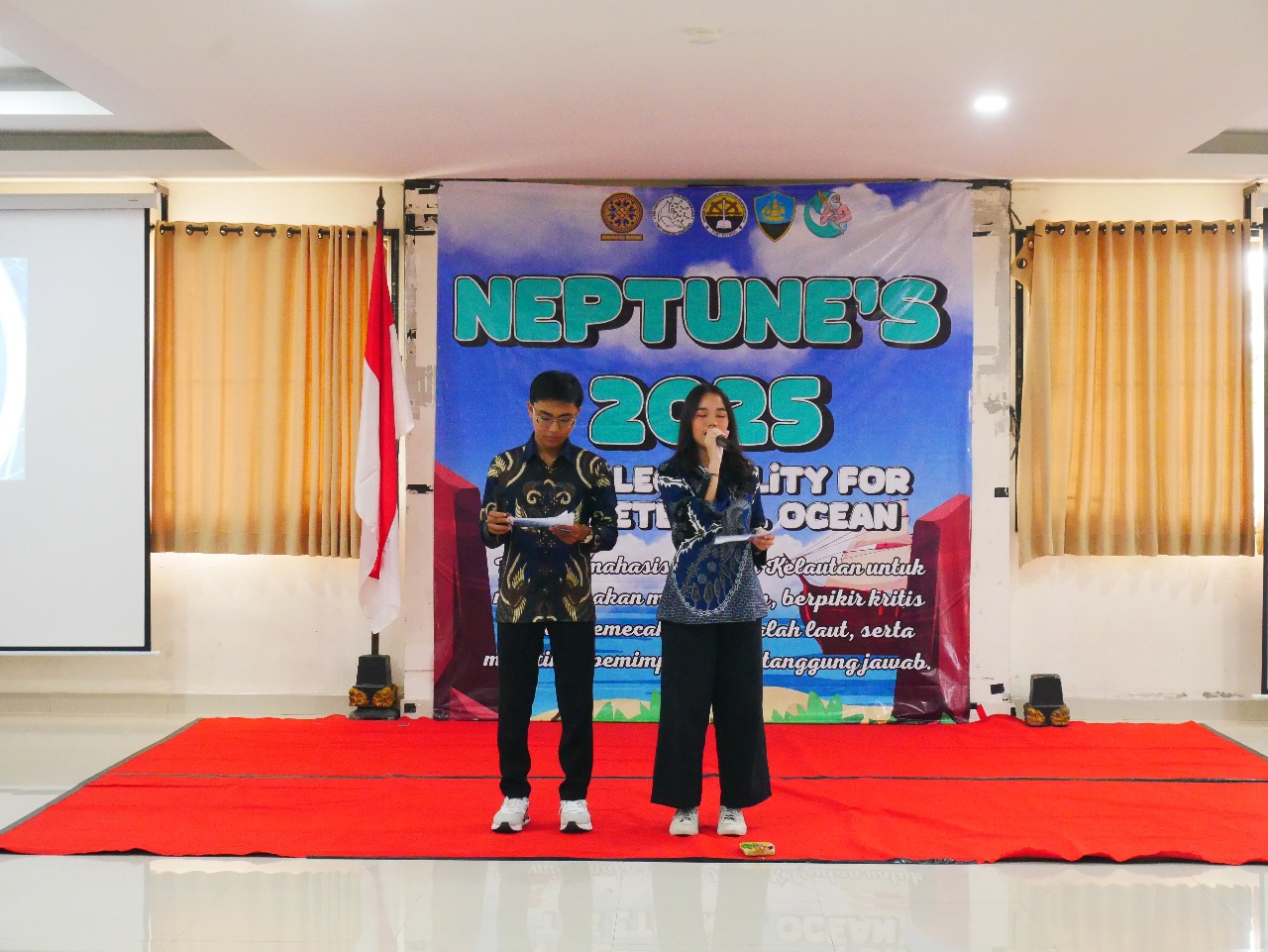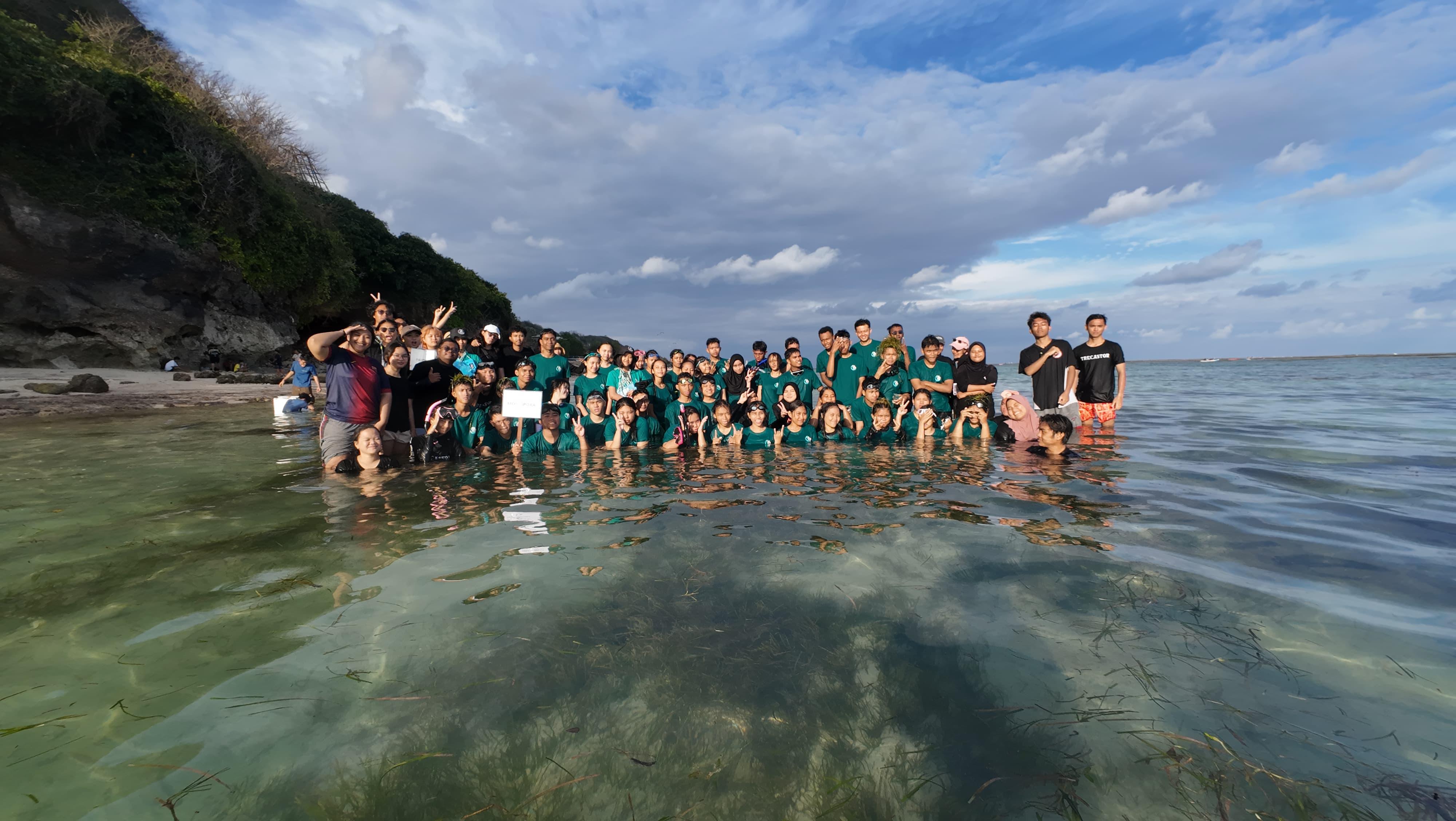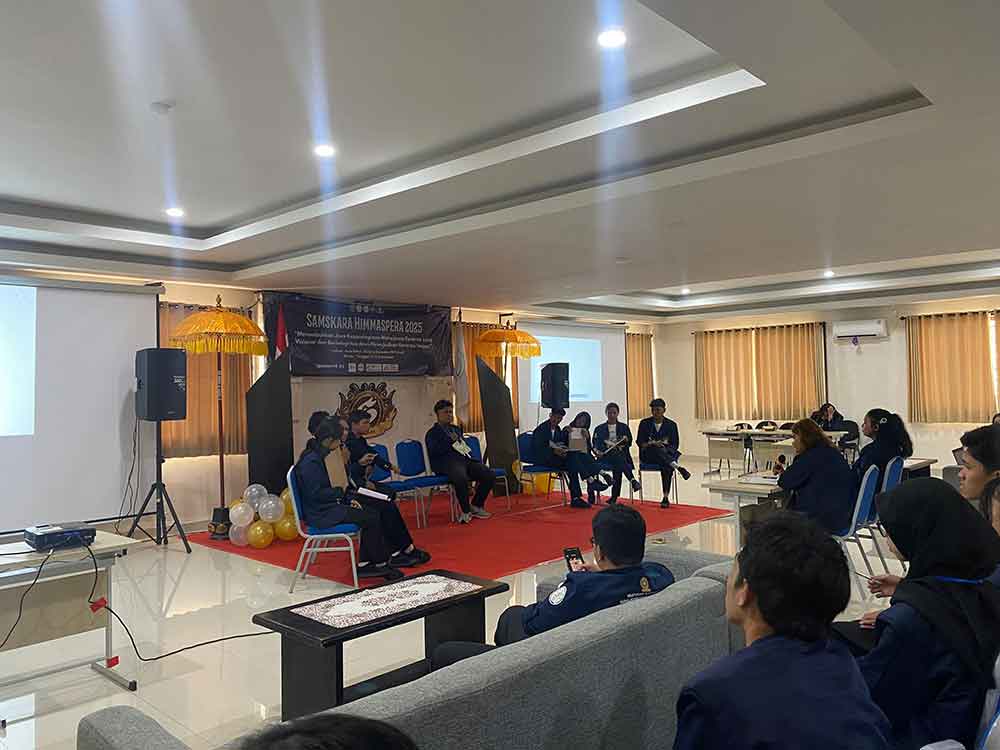Research and Development (LITBANG) Activities by BASIC UDAYANA Conduct Coral Reef Monitoring at BASIC Site in Jemeluk Beach, Amed
Coral reef monitoring is a monthly activity conducted by the Research and Development (LITBANG) Division of BASIC Udayana at their coral transplantation site in Amed waters, Karangasem, Bali. This initiative aims to record growth and other necessary data, while also monitoring the condition of transplanted corals to ensure the sustainability of the underwater habitat.
The monitoring process begins with a technical briefing in the morning, where tasks are divided among divers and field technicians. Following the briefing, the team dives at the BASIC Udayana transplantation site. During the dive, the team records the growth of tagged corals, noting their height, width, and length. The team also uses underwater cameras to capture detailed images of the corals from specific angles, such as the top surface and side views of the colonies, which will later serve as part of the monthly growth and condition reports.
The coral reef monitoring takes place at Jemeluk Beach, Amed, Karangasem, Bali. Jemeluk Beach is a bay-shaped coastline, bordered by Amed Beach to the west and Sunset Point to the east. The BASIC site is located about 150 meters from the shore, near Ocean Tree Bali, and is accessed via a beach entry. The site lies at a depth of 5 to 8 meters below the surface, depending on tidal conditions.
This monitoring activity is conducted routinely every month, involving three BASIC Udayana members, each holding at least an Open Water Diver certification. However, each monitoring session must be coordinated by a member of the LITBANG Division, as this division is directly involved with the coral reef monitoring process, ensuring proper understanding of the procedures. Essential equipment prepared for the monitoring includes SCUBA sets, Newtop paper, pencils, calipers, underwater slates, pH meters, refractometers, and dive computers. The team then travels from Denpasar to Amed, a journey that takes about three hours.
The monitoring took place routinely from July to December 2024, following preliminary discussions and research based on journals that served as references for the monitoring activity. According to the journal guidelines, coral data should be collected at intervals of 20-30 days from the previous data collection. The LITBANG Division decided to carry out the monitoring in the 3rd or 4th week of each month to simplify the scheduling process. The first data collection occurred on July 30, 2024, followed by monitoring on August 29, 2024, September 25, 2024, October 29, 2024, and November 23, 2024. Due to organizational transitions in December, the monitoring for this month could not be carried out and will likely be continued by the new BASIC Udayana management team in 2025.
This coral reef monitoring activity also helps to develop the skills of BASIC members, encouraging them to engage in scientific diving more frequently. This initiative is designed to support and assist members who wish to improve their diving knowledge and abilities, especially those who hold Open Water certifications but face financial barriers to diving. For these members, the monitoring sessions provide an ideal opportunity to gain practical experience.
The monitoring activity also serves to maintain and protect the BASIC coral transplantation site, ensuring it is not abandoned. By continuously preserving the site, BASIC Udayana members aim to help it thrive year after year, turning it into a hub for coral research and data collection for anyone interested in studying coral reefs at Jemeluk Beach, Amed. Moreover, by safeguarding the site, the hope is that the transplanted corals will flourish, enriching the area with coral diversity and attracting more tourists, both local and international. This will, in turn, contribute to the popularity of Amed Beach and stimulate the local economy.



UDAYANA UNIVERSITY